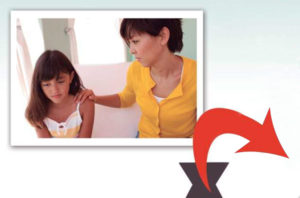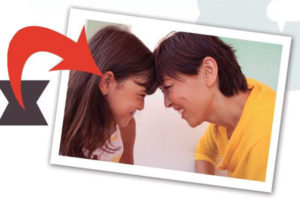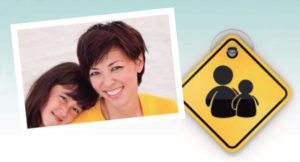Listen Now
At first we can’t figure out why the baby is crying. We don’t know what age to start them on solids. We’re not sure when the right time to start potty training is.
 And you’d think talking is a fairly basic achievement, but progressing from talking to conversing is a different matter.
And you’d think talking is a fairly basic achievement, but progressing from talking to conversing is a different matter.
By the time your child is around three years old, he starts to talk more. His vocabulary gets larger, and he’s putting cute 4-word sentences together. Four-year-olds have ways of saying things that make anyone laugh!
As your child gets older, the level of communication between parent and child usually gets stronger. But, in reality, that’s not always the case, is it?
So how do we talk — I mean really communicate — with our kids? How do we get more than a 2-word answer from a quiet 10-year-old?
One thing I’ve learned is that all human beings, no matter the age, race or background, want to talk about themselves! Ask anyone a few questions about them personally, and be prepared to hear a 5-minute answer.
This kind of communication is usually easy with younger kids since they don’t have the fear of holding anything back or being judged. But the older the kids are and the more experiences they have with school and friends, the more they tend to hold back from talking with their parents.
Since children aren’t yet intellectually mature enough to know how to fully and properly express themselves, it’s the parents job to ask the right open-ended questions.
Why don’t kids come with an instructional manual?
Out of my five kids, my 12-year-old (the oldest) is the one I have to ask at least five or six questions just learn how soccer practice was! Even though he is a kid of very few words, I try to teach him how to talk to me. He needs to learn how to express what is in his head and let it come out of his mouth. A child who doesn’t talk very much can be misunderstood as a snob, a shy person, or just plain stubborn. As parents or caregivers, we have the privilege to help that child get beyond those labels and teach them converse with family and friends.
On the other hand, three of my kids are very chatty. My 6-year-old loves to talk to anyone about anything, anywhere! We joke that he likes to give away our family secrets! My 10-year-old spills out all she is thinking about and everything she has done.
To be truthful, it’s very exhausting some days to listen to them. So my job is to teach them to talk about only one thing at a time.
 At dinner time we play a little game that gives everyone a chance to tell one short specific thing about themselves. It gives me insight into their day, too. I learn what they’ve been thinking about, what could be bothering them, and I get to know them better in a matter of just a few minutes. My kids know that our dinner table is a safe place to share.
At dinner time we play a little game that gives everyone a chance to tell one short specific thing about themselves. It gives me insight into their day, too. I learn what they’ve been thinking about, what could be bothering them, and I get to know them better in a matter of just a few minutes. My kids know that our dinner table is a safe place to share.
During this “High/Low” game, I ask each child individually, “What was your high point today?” and “What was the low point of the day for you?” Sometimes I change it up and ask everyone to share their favorite part of their day and then one thing they wish could have been different.
Simple, short, open-ended questions like this can happen anywhere — while making supper, on the way home, or as you tuck them in bed. Kids feel loved and validated when they are listened to.
Sometimes, depending on their answers, I know if I need to ask about a certain situation or if they are having problems with friends. All I’m doing is asking questions. If I start lecturing, I run the risk of having them clam up because they’re afraid of consequences.
Asking simple non-threatening questions is a great start for anyone trying to get to know a child better. It works whether you just want to connect with a child or need to be sure the lines of communication stay open as they get older.
Go ahead. What’s your question for the day?



